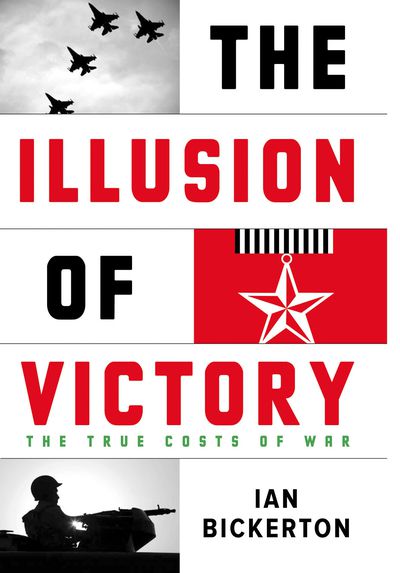The Illusion of Victory demonstrates that most of the rewards of victory in modern warfare are either exaggerated or false.
The Illusion of Victory demonstrates that most of the rewards of victory in modern warfare are either exaggerated or false. When the ostensible benefits of victory are examined a generation after a war, it becomes inescapably evident that the defeated belligerent rarely conforms to the demands and expectations of the victor.
Consequently, long-term political and military stability is denied to both the victorious power and to the defeated one. As a result, neither victory nor defeat deter further outbreaks of war. This sobering reality is increasingly the case in the twentieth and twenty-first centuries. Ian Bickerton persuasively argues that as the rhetoric of victory becomes more hollow all countries must adopt creative new approaches to resolving disputes.
The Illusion of Victory demonstrates that most of the rewards of victory in modern warfare are either exaggerated or false. When the ostensible benefits of victory are examined a generation after a war, it becomes inescapably evident that the defeated belligerent rarely conforms to the demands and expectations of the victor.
Consequently, long-term political and military stability is denied to both the victorious power and to the defeated one. As a result, neither victory nor defeat deter further outbreaks of war. This sobering reality is increasingly the case in the twentieth and twenty-first centuries. Ian Bickerton persuasively argues that as the rhetoric of victory becomes more hollow all countries must adopt creative new approaches to resolving disputes.










